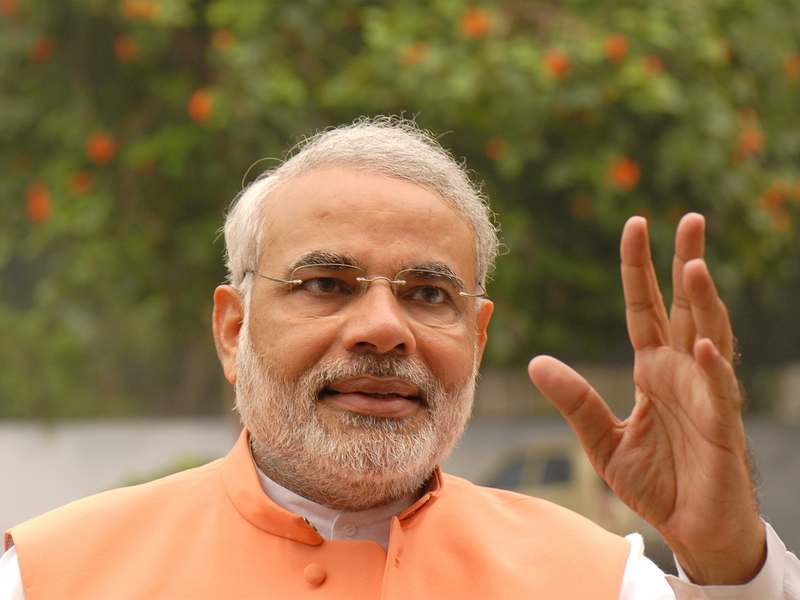
The Bhartiya Janata Party (BJP) led National Democratic Alliance (NDA) government will celebrate November 8, as the anti-black money day. On November 8, last year, the Narendra Modi government had demonetised Rs 500 and Rs 1,000 notes. This was seen as an attack on the huge amount of black money in the Indian financial system.
In the end, it turned out to be a legal money laundering scheme and nothing else.
After demonetisation, the prime minister Modi has continued to maintain a stance against black money in almost all his public posturing. All this posturing reminds me of a line from the Salman Khan starrer Wanted: “Ek baar jo maine commitment kar di, phir main apne aap ki bhi nahi sunta (Once I have committed to something, then I don’t even listen to myself).
Nevertheless, how serious is the Modi government and the prime minister himself about tackling the black money menace? Recently, the prime minister was in Gujarat and in a bid to reach out to the traders who have conventionally supported the BJP in the state, over the few decades, he said: “In the last few months, 27 lakh additional people have registered themselves for this indirect tax [i.e. the Goods and Services Tax]… No businessmen wants to indulge in tax evasion. But tax rules, system, tax officials and even politicians are forcing them to do it…I know, that those who are joining have fear that their past records will be checked. I assure you that no tax officials will be allowed to open past records of those who want to come in the mainstream.”
What is the prime minister saying here: A bunch of people have been afraid of coming on to the Goods and Services Tax system because the declarations they make now and in the months to come, will give the government a good idea about the kind of money they were making in the past. The government also has the details on the kind of tax they have paid in the past [if at all any]. Hence, it is clearly in a position to estimate the total amount of taxes that were not paid in the past.
The prime minister was simply trying to assure the people of the state of Gujarat that the past records will not be checked and they won’t get tax demands from the government.
This assurance raises a number of questions:
a) Does the law of the land change, simply because there is an assembly election in the state?
b) Is the commitment to eliminating the black money menace limited to only those states and only those times, when there are no assembly elections happening?
c) Also, does this mean that tax officials are supposed to turn a blind eye to the past shenanigans of people who should have paid tax, and haven’t, because the prime minister has made an assurance during the course of an election speech?
I have always maintained in my writing that prime minister Modi and the BJP aren’t serious about eliminating the menace of black money. And this is one of the things they like to talk about to build a narrative around the point of the government being serious about eliminating corruption and black money. The voters like to hear such things and the politicians are giving it to them.
Let me explain this point in a little more detail. You and I have been getting emails and smses almost every day asking us to link our Aadhar card to our bank accounts. We have also been getting smses asking us to link our Aadhar card to our mobile numbers. It is almost impossible to carry out any transaction with the government without an Aadhar card.
At the same time, no identification is needed to donate money to a political party. Why is that the case? Why can’t the Aadhar card be linked to every donation made to a political party as well. What is stopping the government from doing that? Almost everyone has an Aadhar card now.
If the idea is to eliminate black money, why aren’t donations to political parties linked to Aadhar. In fact, to take this argument even further, why are political parties allowed to collect donations in cash, in this day and age. If the idea is to encourage digital
transactions, why can’t PM Modi and the BJP, set an example on this front and ensure that the BJP takes only digital donations.
A lot of the donation to the political parties at the state level comes from the builders and the real estate companies. Because these donations are made in cash, builders need to carry out a part of their real estate transactions in cash as well. (This is not to say that all the cash that they collect is handed over to politicians unless of course the builder is a politician himself).
To conclude, there is enough evidence to suggest that PM Modi and the BJP are not serious about tackling the black money menace. If they were they would first start with genuinely reforming political donations. And this leads me to believe that tackling the black money menace, like many other things, is just another talking point for PM Modi and the BJP.
(This was just a glimpse. If you want to know how big the black money problem is in India and how we can tackle it, there is a long chapter in my book India’s Big Government. The good news is that the book is available at a huge discount on Amazon till Friday, 27th October. The Kindle version is going at Rs 199, against a maximum retail price of Rs 749, and the paperback is going at Rs 499, against a maximum retail price of Rs 999).
The column originally appeared on Equitymaster on October 26, 2017.